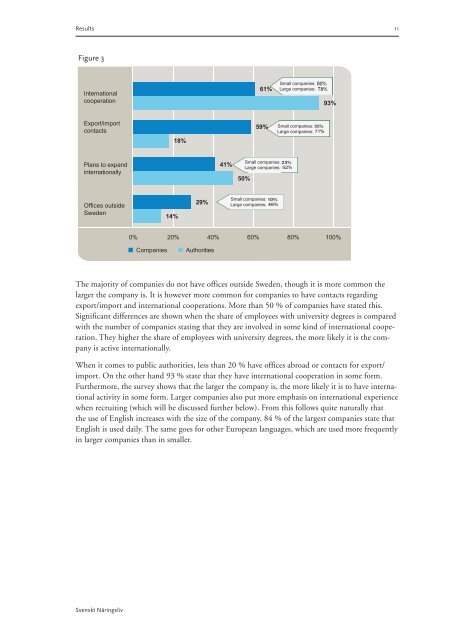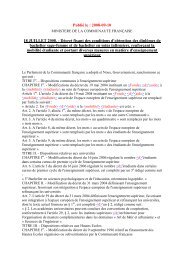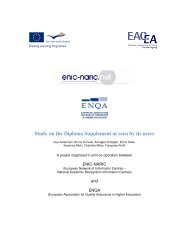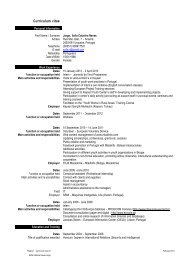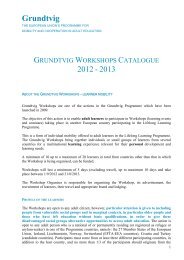Employers' view on studies abroad - Svenskt Näringsliv
Employers' view on studies abroad - Svenskt Näringsliv
Employers' view on studies abroad - Svenskt Näringsliv
Create successful ePaper yourself
Turn your PDF publications into a flip-book with our unique Google optimized e-Paper software.
Results 11<br />
Figure 3<br />
Internati<strong>on</strong>al<br />
cooperati<strong>on</strong><br />
61%<br />
Small companies:<br />
Large companies:<br />
93%<br />
Export/import<br />
c<strong>on</strong>tacts<br />
18%<br />
59%<br />
Small companies:<br />
Large companies:<br />
Plans to expand<br />
internati<strong>on</strong>ally<br />
41%<br />
Small companies:<br />
Large companies:<br />
50%<br />
Offices outside<br />
Sweden<br />
14%<br />
29%<br />
Small companies:<br />
Large companies:<br />
0% 20% 40% 60% 80% 100%<br />
Companies<br />
Authorities<br />
The majority of companies do not have offices outside Sweden, though it is more comm<strong>on</strong> the<br />
larger the company is. It is however more comm<strong>on</strong> for companies to have c<strong>on</strong>tacts regarding<br />
export/import and internati<strong>on</strong>al cooperati<strong>on</strong>s. More than 50 % of companies have stated this.<br />
Significant differences are shown when the share of employees with university degrees is compared<br />
with the number of companies stating that they are involved in some kind of internati<strong>on</strong>al cooperati<strong>on</strong>.<br />
They higher the share of employees with university degrees, the more likely it is the company<br />
is active internati<strong>on</strong>ally.<br />
When it comes to public authorities, less than 20 % have offices <strong>abroad</strong> or c<strong>on</strong>tacts for export/<br />
import. On the other hand 93 % state that they have internati<strong>on</strong>al cooperati<strong>on</strong> in some form.<br />
Furthermore, the survey shows that the larger the company is, the more likely it is to have internati<strong>on</strong>al<br />
activity in some form. Larger companies also put more emphasis <strong>on</strong> internati<strong>on</strong>al experience<br />
when recruiting (which will be discussed further below). From this follows quite naturally that<br />
the use of English increases with the size of the company. 84 % of the largest companies state that<br />
English is used daily. The same goes for other European languages, which are used more frequently<br />
in larger companies than in smaller.<br />
<strong>Svenskt</strong> Näringsliv


